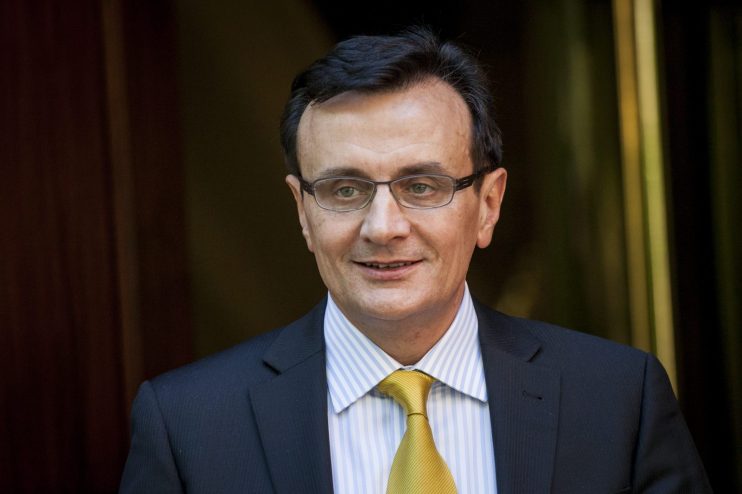Covid-19 global pandemic to be ‘regional epidemic’ by next year, says AstraZeneca boss

AstraZeneca boss Pascal Soriot said that he expects the global Covid-19 pandemic to become a regional epidemic by next year, after the pharmaceutical giant decided to start profiting from its vaccine.
The chief executive of the pharmaceutical giant told Sky News that by 2022, “essentially most of the world at that point will be in a different phase. And we will be more in a regional epidemic or regional pandemic than a global pandemic.”
The now, for-profit vaccine maker has had its share price remain largely flat since November last year, when it’s Covid-19 jab was in full swing, in comparison with rivals Pfizer and Moderna – which have made a comfortable profit on their vaccines over the course of the pandemic.
AstraZeneca’s share price has lifted just 5.5 per cent in the last 12 months, which has been dwarfed by the more than 40 per cent leap by Pfizer to $51.20 a share and the 179 per cent surge from Moderna to $282.69 per share.
The London-listed pharmaceutical firm broke its non-profit promise when declaring earlier this months that it would soon be taking commercial orders.
The move, paired with the minor share price growth, suggests it is time to pay up for the firm’s shareholders.
European restrictions
As lockdown restrictions blanket Europe once again, Soriot went on to suggest that the UK’s use of the AstraZeneca/ Oxford vaccine in the early stages of the immunisation programme may have held back hospitalisations as cases climbed.
“Continental Europe vaccinated older people mostly with the mRNA vaccine and the UK vaccinated older people mostly with our vaccine – and we’ll have to see over time whether that creates a difference,” he said.
“But what is really interesting to see in the data today is that in the UK, the number of hospitalisations…has remained relatively low, even though there were lots of infections, the number of severe infections and hospitalisations was still reasonable, relative to continental Europe, where the number of hospitalisations is relatively high in some countries.”
AstraZeneca has injected around £5.3bn on its research and development (R&D) annually, with nearly a third being pumped into UK efforts.
“We always knew that some vaccines would be sold at a profit,” Soriot explained, after the move was condemned by critics.
“We made the decision from day one that we would partner with Oxford and deliver this vaccine around the world at no profit so everybody could access it much as possible.”
The pharmaceutical lead added that the Covid-19 vaccine orders being made today will be delivered next year, and that it is yet to deliver “a lot” of orders at no profit.
Soriot’s comments come as the famed vaccine maker unveiled a £1bn research facility in Cambridge which includes advanced robotics, high-throughput screening and AI-driven technology, which will accommodate 2,200 research scientists.